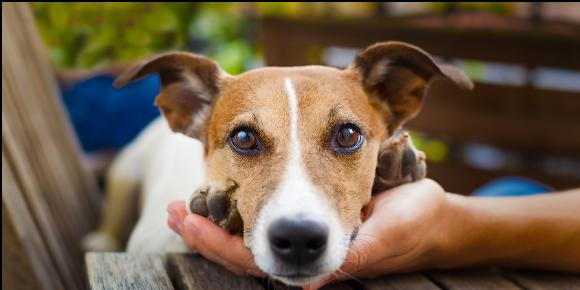
November is Pet Cancer Awareness Month! Not just a two-legged problem, cancer is all too common in cats and dogs. It's the #1 disease-related killer of our pets. 1 in 4 dogs and 1 in 5 cats will get cancer. There are many factors that can influence the development of cancer, but just as in humans, it is impossible to truly know why some individuals develop cancer while others do not.
The great new is that pets today have a better chance of being successfully treated for cancer than they did before, thanks to advances in early recognition, diagnosis and treatment.
What are the Warning Signs?
The warning signs of cancer in dogs are similar to those in people, a lump or bump, a wound that doesn’t heal, any kind of swelling, abnormal bleeding. But generally, a pet owner should keep an eye out for basic changes in the normal functions of eating, drinking, peeing, pooping and sleeping —and contact their veterinarian if they have concerns. Bad breath or a change in eating patterns can also be a sign of oral (mouth) cancers.
How is cancer diagnosed?
X-rays may be useful in detecting internal tumors, including metastases. Blood tests can help detect some tumors. To identify most tumor types, it is necessary to obtain a sample of the tumor. Depending on the type of tumor suspected, your veterinarian may obtain this sample through a fine needle aspiration, a tissue biopsy, or full removal of the tumor. In some cases, an exploratory surgery or ultrasound guidance may be needed.
In most cases a biopsy sample of the tissue must be examined to reach an accurate and reliable diagnosis. Your veterinarian will send the sample to a specialized laboratory for examination by a veterinary pathologist.
What types of treatment are available?
The most common and often most effective treatment is surgical removal of the tumor. Other treatments may be considered for tumors that are too big or too numerous to be removed, in inaccessible locations, and for non-tumor types of cancer such as leukemia. These include drugs (chemotherapy), immunotherapy (specific or nonspecific stimulation of the immune system), and radiation therapy. These treatments are typically performed at specialty centers. New approaches, such as cancer vaccines, are under research and development.
Before you see your vet, don't panic or jump to conclusions. The tricky thing about symptoms of cancer is that they can be signs of other problems, too. A lot of these symptoms overlap with other diseases as well, so we generally recommend if people see any of these signs to go to the vet.
Questions that pet owners may want to ask their veterinarian and veterinary oncologist when their pet has been diagnosed with cancer include:
What treatments are available?
What is the prognosis with each treatment?
What are the side effects of each treatment and how will they affect my pet’s quality of life?
How long will I need to treat my pet?
What is the cost of each treatment?
How many visits back to the veterinarian are needed?



